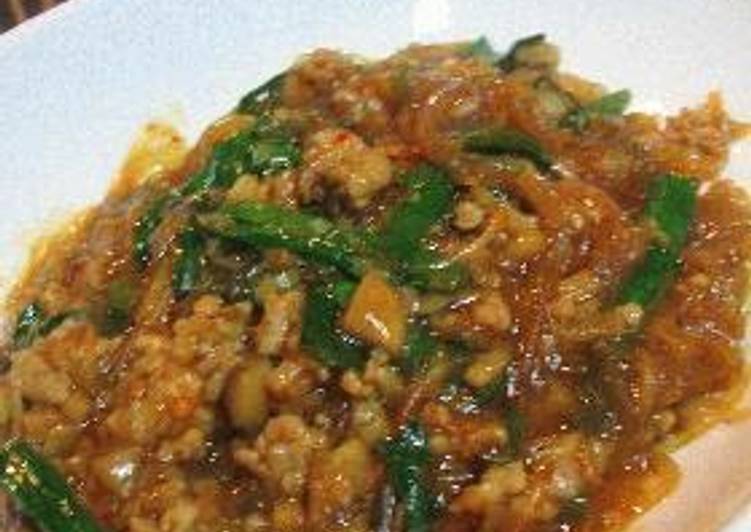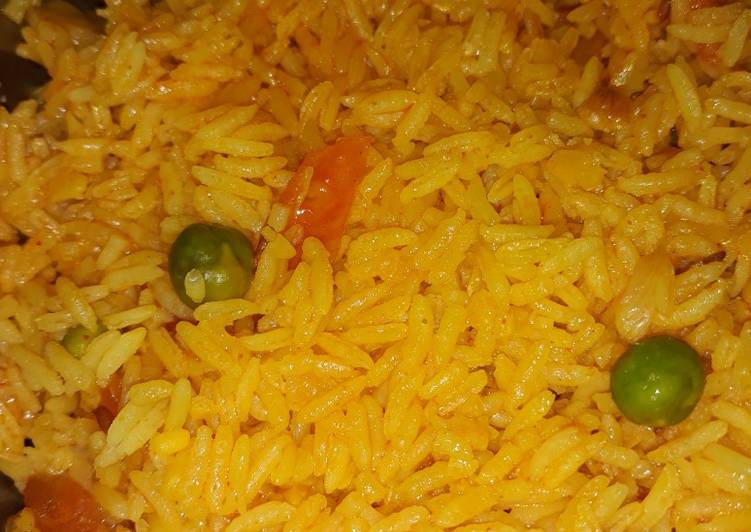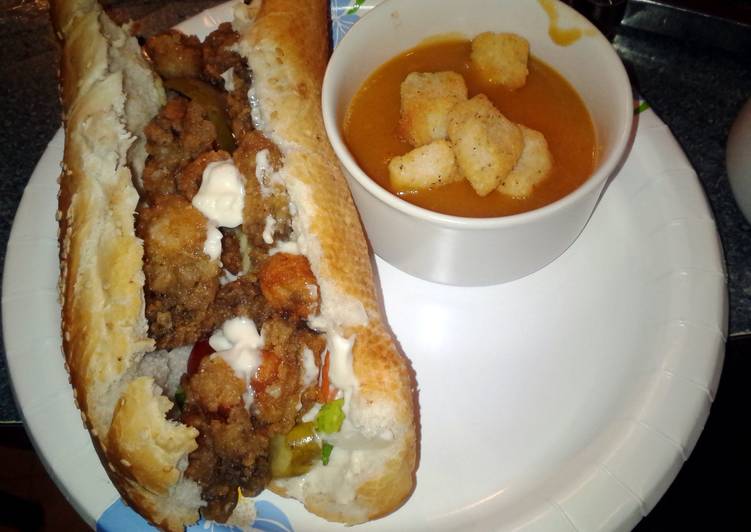
Hello everybody, it’s Jim, welcome to my recipe page. Today, I’m gonna show you how to prepare a special dish, a family favorite: mapo cellophane noodles. One of my favorites. This time, I will make it a little bit unique. This is gonna smell and look delicious.
Cellophane Noodles How To Prepare Cellophane Noodles For Your Favorite Asian Recipe. Cellophane Noodles is made from mung beans and is known as mung bean. Cellophane noodles tossed in a sesame-chili dressing with shrimp and veggies make a healthy and energizing dish.
A Family Favorite: Mapo Cellophane Noodles is one of the most popular of current trending foods on earth. It is simple, it is quick, it tastes yummy. It is enjoyed by millions daily. A Family Favorite: Mapo Cellophane Noodles is something which I have loved my whole life. They’re fine and they look fantastic.
To begin with this recipe, we have to first prepare a few ingredients. You can have a family favorite: mapo cellophane noodles using 15 ingredients and 9 steps. Here is how you cook it.
The ingredients needed to make A Family Favorite: Mapo Cellophane Noodles:
- Get 10 grams Cellophane noodles (harusame)
- Prepare 150 grams Ground meat (any type of meat)
- Make ready 1 clove Garlic
- Take 1 piece 1 dash smaller than your thumbtip Ginger
- Get 1/2 stalk Japanese leek
- Make ready 2 tsp or 1 mushroom Shiitake mushroom
- Get 1/5 bunch Chinese chives
- Take 1 tsp Sesame oil
- Prepare 1 tsp Doubanjiang
- Get Seasonings
- Get 200 ml Soup stock (chicken or other)
- Take 2 tbsp Sweet Miso (or tianmianjian - Chinese sweet bean sauce)
- Make ready 1 tsp Soy sauce
- Take 1 tsp ☆ Katakuriko
- Get 1 tbsp ☆ Water
Cellophane noodles (also known as Chinese vermicelli, bean threads, bean thread noodles, or glass noodles) are a type of transparent Asian noodle made from starch (such as mung bean starch, potato, or canna starch) and water. They are generally sold in dried form, boiled to reconstitute, then used in. Cellophane noodles, also known as glass noodles, are a type of transparent noodle made from starch (such as mung bean starch, potato starch Cellophane noodles should not be confused with rice vermicelli, which are made from rice and are white in color rather than clear (after cooking in water). Traditional mapo tofu calls minced meat (pork or beef) as the main side ingredient to enhance the flavor.
Instructions to make A Family Favorite: Mapo Cellophane Noodles:
- Cut the vegetables. Finely chop the mushrooms, mince the leek, garlic, and ginger. Cut the garlic chives into 3cm lengths. Combine the seasonings and set aside.
- In a pan, add the ginger, garlic, and sesame oil, and turn on the heat.
- Stir the pan as it warms up, and add the ground meat. Be careful not to burn the garlic.
- When the meat is about 80% cooked, add the leek and mushrooms. Continue cooking.
- Add the doubanjiang, stir and continue cooking.
- Mix the seasonings.
- Bring the pot to a simmer. Add the cellophane noodles. You could also cut the noodles shorter with kitchen scissors.
- The noodles will quickly soften. Cook to reduce the liquid. Add the garlic chives. Mix the ☆ ingredients, and slowly add to the pan. This will thicken the sauce, so stop when the desired thickness is reached.
- I only add a small amount of doubanjiang, as I have small children but you can increase the amount if you want it spicier.
Tofu itself is quite plain and tasteless. Usually mapo tofu is cooked with minced pork or sometimes with beef. I make this vegetarian version so that the vegetarian foods can also enjoy it. Drain noodles in colander and rinse under cold water to stop cooking. I made this for our family dinner tonight and it was delicious.
So that is going to wrap this up with this exceptional food a family favorite: mapo cellophane noodles recipe. Thanks so much for your time. I am confident you can make this at home. There’s gonna be interesting food at home recipes coming up. Remember to bookmark this page on your browser, and share it to your loved ones, colleague and friends. Thank you for reading. Go on get cooking!


